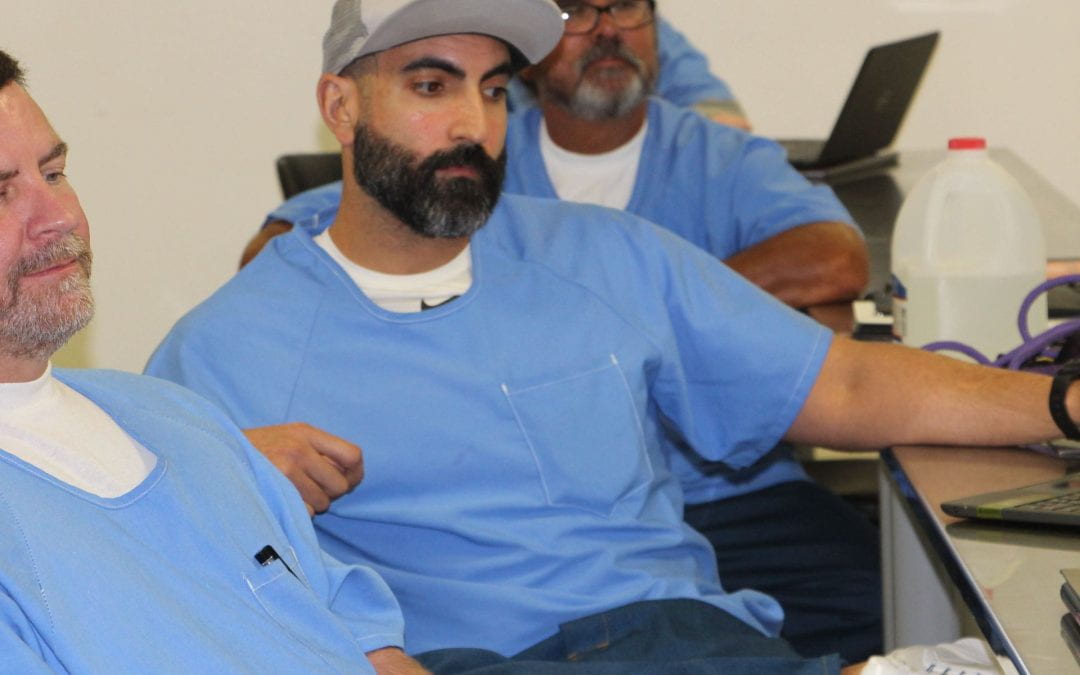Restore Voting Rights to All Californians
By Babak Azadgilani
Recently California restored voting rights to felons on parole. This was a positive step towards reintegrating formerly incarcerated people back into society. However, California can do more by restoring voting rights to incarcerated people. Currently one state in the Union allows incarcerated people to vote and that is Maine. While the impulse to deny voting rights to prisoners can be understood in the framework of retributive justice, Californians must ask, “what is the purpose of this social policy and is the policy effective at achieving that purpose?”
Supporters of disenfranchisement for prisoners will point to the need to hold offenders accountable and to provide a deterrent for criminal behavior. This idea is misguided. An inconvenient fact for anti-reform advocates is that 95% of prisoners will return to society. This means it is in society’s interests for prisoners to become civic minded sooner rather than later. If we can instill in prisoners a notion of what it means to be a good citizen, than we are likely to receive better outcomes when it comes to recidivism.
“A prisoner that is interested in how laws are made and paying attention to key issues in society, is more likely to be concerned with the proper functioning of society. They are then less likely to want to contribute to the dysfunction of society. They may see their own contribution to the dysfunction of society and work to change that.”
-Babak Azadgilani
Is it really a terrible thing if prisoners take an interest in the political process? If prisoners were to study the issues, learn about the legislative process, and vote in elections, why is that a bad thing? I argue that far from being a bad thing, it is a wholly good thing. A prisoner that is interested in how laws are made and paying attention to key issues in society, is more likely to be concerned with the proper functioning of society. They are then less likely to want to contribute to the dysfunction of society. They may see their own contribution to the dysfunction of society and work to change that.
Every election cycle there are “Get out the vote” campaigns. If it makes logical sense to involve every American adult citizen in the political process, then why are there felony disenfranchisement laws? Well, one can look at the demographics of felons and come to certain conclusions. Overwhelmingly, felons are people of color and/or low income. These segments of society have been excluded from the political process (by design) going back to the dawn of this country. As voting rights were expanded to include people of color policy was implemented to restrict voting rights via other means such as poll taxes, literacy tests and/or felony disenfranchisement. The Voting Rights Act outlawed many of the more odious forms of voting restriction, yet felony disenfranchisement remains. While poll taxes and literacy tests were used as a proxy for race in the past, today it is felony disenfranchisement.
Prisoners are told through deed and action, that they have no voice, no say, and are given no consideration for how society functions. Is it shocking that prisoners continue to adopt an attitude that “if society does not care about me, why would I care about society?” Imagine that you work for an employer. At this job, everyone gets to vote on important issues. But not you. You were written up, and you are no longer allowed to vote. Will you be as involved in the functioning of the organization knowing that you have no voice at the company? That your view does not matter? Now further imagine you are more likely to be written up than your white co-workers. This is because the managers are white, but you are not. How would you feel about the workplace now? Perhaps you would feel antipathy or even hostility. Now analogize this example to prisoners.
If California aims to be a leader in criminal justice reform and dismantling institutional racism, it must restore voting rights to incarcerated people (who are disproportionately people of color). We need to reincorporate prisoners back into society, before they are released. We can help achieve this by allowing prisoners to vote. We should encourage all Californians to be concerned with who will be their elected representatives, who the Superintendent of Education is for their children’s schools, and which propositions get approved. Civic mindedness is a virtue that should be fostered. Someone who feels alienated from society due to their status as a second-class citizen is more likely to be anti-social. If we continue to treat prisoners as social outcasts and remove the ways in which they can contribute to society, then California will continue to face the intractable problem of recidivism.
I leave you with a quote:
“Treat a man as he is and he will remain as he is. Treat a man as he can and should be and he will become as he can and should be.” -Goethe

